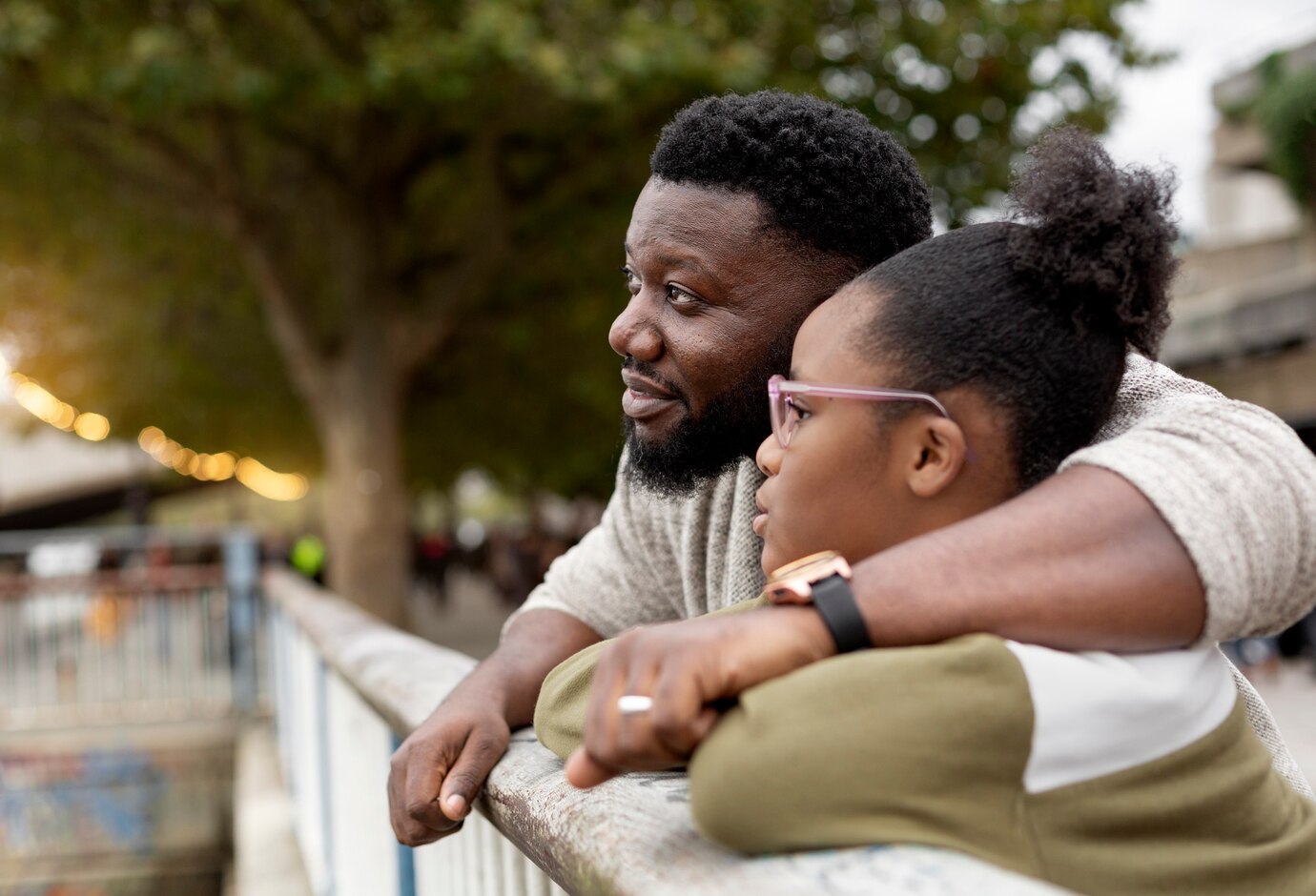I loved my apartment; it was the first place I lived alone. My living room and kitchen were on the first floor, and two bedrooms and a bath were on the second floor. My brother, Karibi, gifted me a solid wooden bookcase. I proudly placed it in the extra bedroom and built my library around it. I was proud of this place. It was within walking distance of the Law School, and although I worked two jobs to keep that roof over my head and food in my fridge, it was so worth it.
I scoured thrift stores and garage sales to furnish my place. I chose every piece with love. I even had a few live plants and the cutest kitchen table. The only thing that hadn’t been previously used by someone else was my mattress. But I made it all my own. It was my little haven. It was my place to escape all the world’s stress: my haven with heavily draped windows. Those drapes allowed me to block out my neighborhood’s increasing blight and crime.
I had some fears about my neighborhood, particularly the abandoned building right next to my apartment. I had very late nights and equally early mornings with school and two jobs. The mostly non-working streetlights offered no reassurance. But I soon discovered that I had a guardian angel of sorts. His nickname was English. He told me he earned the name because he had a pronounced British accent.
When I saw him in my new neighborhood, he introduced himself and reminded me we had met through his sister. This time, he shared more of his life story. They had relocated to the US from Britain as teenagers. The transition had been difficult, and he had fallen in with the “wrong” crowd. I had tutored him a few years before, and though he eventually dropped out of college, he was grateful for my kindness towards him. He said he had eyes in the neighborhood and, if I had any trouble, to inform him, and he would handle it. I wasn’t sure what trouble he anticipated I could have or what to do with the offer.
After that encounter, I would see English from time to time. He was part of the group that sometimes went in and out of that abandoned building. One day, I saw him as I walked back from the Law School. He commented on the heavy books I was lugging and offered to assist me. I declined, but we walked together towards my apartment as I asked him about his plans for his life. English laughed and said, “We aren’t all book-smart.” He talked about his art and love for music but articulated no real plan for his future.
I told him while I did not want to know what he was up to, I sensed that it would either land him in jail or get him killed. I talked to him about community college or vocational education as an option, but from his observable actions, the pull of street life proved too strong for him. Occasionally, I would see him with other young men; his leadership abilities were evident. I was 21 years old and female. What could I do to help this brother without endangering myself? I had no answers. I kept my head down and continued with my studies and life. From time to time, there would be police raids in the neighborhood. On occasion, I would see English. If he were alone, I would continue to share words of encouragement. At other times, I kept my head down and tried not to draw attention to myself.
One morning, I left my apartment to find my car sitting on blocks. ALL four of my tires were gone!!! Other cars were in the lot, and they were still intact. Had I been targeted? Was someone sending me a message? Why my car? It was hardly the best one in the lot. I swallowed the panic that rose in my throat. What was I to do? I could call it in, but all the police were going to do was take a statement and promise to investigate. The theft of my tires would not be a priority. I couldn’t afford to purchase four tires, and the insurance company reminded me that I had a deductible that would have to be covered before any payouts. It was then that I remembered English’s offer.
He lived down the street from me. I gathered my courage, walked to what I hoped was his abode, and knocked on the door. He answered, a surprised look on his face. English invited me in, and when I politely declined, he came out on the porch where I stood. I told him about my missing tires. He listened to my story and inquired whether I had contacted the police. I assured him I had not. I told him I was a poor student, and I needed my car for work, and it would take me months to save enough money to replace the tires. He then instructed me to return to my apartment and stay there until I heard from him. It did not make sense to me to miss my classes, so I decided to go anyway. I did not want to know who took my tires. I just wanted them back.
A few hours later, I returned home and ventured to the parking lot. Lo and behold, I saw my car with all four tires back on. As far as I could discern, those tires looked exactly like the ones that had been stolen. I wasn’t inclined to ask any questions, not that there was anyone to ask. I was just grateful they were returned.
I was unsure about street protocol and my next steps. Should I go and express my thanks? Should I wait till our paths cross again? Was I setting myself up to be roped into a situation that could kill my legal career before it even started? I decided to do nothing.
The next time I saw English, he inquired about my car. He said, “I told you I would look out for you like you looked out for me.” I expressed my gratitude. He seemed genuinely proud of the fact that he had helped me out. But there was something else; I could not forget the enduring sadness in his eyes even when he smiled. I tried to tell him I saw great potential in him and encouraged him to return to college. He just shook his head and walked away. I wanted to help, but I needed to figure out how. So instead, I said, “If I can ever be of assistance to you, please do not hesitate to let me know.” I cared. I wanted to do more, but I was at a loss as to what to do. I hope my intentions towards him brought him peace, but I may never know that. He looked back and waved. It was the last time I saw him.
Months later, rumor has it he was picked up in a police raid. As crime increased, I got more concerned as a single woman living alone. I moved out of my haven at the end of the school year. I do not know that young man’s real name. He was just a few years younger than me, so he would be middle-aged now if he is still alive. I have often thought about what I could have done differently to impact him and his acquaintances positively. Years later, when I lived in Bedford-Stuyvesant, I was again overcome by a feeling of helplessness in the face of the needs of the youth in the community where I resided.
There are many stories I could have shared about the importance of serving our fellow humanity. Still, I am reminded of this young man and how he repaid my kindness to stir up awareness for us all to do our part to reach out to those struggling amongst us. I wish I could have done more to assist English. Behind his tough exterior, I saw a young man looking for love and a sense of belonging. Memories of English were one of the reasons I later created the Success Youth and Empowerment Camp in Danville, Illinois. It is why I continue to mentor young people today. Are there young people around you? Reach out and serve them. We never know what impact we may have one way or another, but we fail them and ourselves as well if we stop caring.



